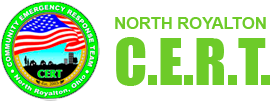Preparedness Tips
Make sure to have a well-stocked emergency supply kit that includes essential items such as non-perishable food, water, flashlights, batteries and a first aid kit. Have multiple ways to receive weather alerts and stay informed about potential severe weather conditions in the Midwest such as radio, television, and internet resources. Consider having a back-up power supply such as a generator or solar power in case the electricity goes out. Lastly, prepare an evacuation plan in case you need to evacuate
Make sure to always have a good stock of supplies on hand such as bottled water, non-perishable food items, flashlights and extra batteries, first aid items, and extra clothing. Additionally, invest in a generator and make sure to keep it serviced and ready for use when needed. Lastly, invest in good weather radios and keep them tuned into your local National Weather Service office for any unexpected severe weather conditions.
Make sure to prepare for winter weather by having a stockpile of warm clothing, non-perishable food, and a reliable heat source. In addition, make sure to also have a plan in place for potential natural disasters such as tornadoes, floods, and blizzards.
Make sure you are prepared for the extreme weather conditions the Midwest often experiences, such as tornadoes, strong winds, extreme heat and cold temperatures, and snow storms. Have supplies on hand to shelter in place, such as a flashlight, extra batteries, a first aid kit, non-perishable food and water, and other essentials. Make sure you have a plan in place and practice it with your family in case of an emergency.
Make sure to be prepared for extreme weather changes in the Midwest USA. Have an emergency kit with essentials like food, water, a flashlight, extra clothes, a first aid kit, and any extra necessary items that may help you in the event of an emergency. Additionally, it is important to stay up to date with news in the area and heed any warnings given by local authorities.
Prepare for extreme weather conditions such as tornadoes and flash floods. Make sure you have an emergency supply kit, including items such as water, food, first aid supplies, flashlights and batteries, dust masks, and an emergency plan. Take steps to protect your home, such as making sure you secure outdoor items and windows, and trimmimg any dead branches from trees. Be aware of your surroundings, and stay informed of weather updates.
